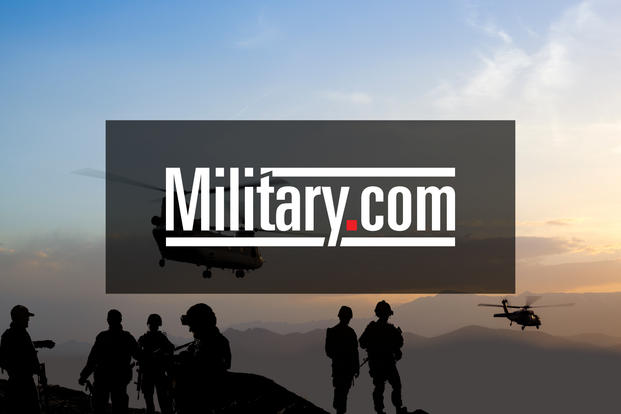U.S. warplanes have now "disabled" four of the five bridges over the Tigris River in Mosul to limit suicide car bombings against hard-pressed Iraqi forces fighting the Islamic State in the eastern sector of the city, a top coalition commander said Wednesday.
The attacks on the bridges were carried out to support the Iraqi Counter Terror Service units in the eastern half of the city who were struggling against Islamic State mortars, rockets, snipers and especially vehicle borne improvised explosive devices, or VBIEDs, said British Maj. Gen. Rupert Jones, deputy commander of Combined Joint Task Force-Operation Inherent Resolve.
The Iraqis were facing "tough resistance," Jones said in a video briefing from Baghdad to the Pentagon, and "in response, the coalition has disabled four of the five bridges connecting eastern and western Mosul" to limit access for the suicide car bombs.
The coalition aircraft were also cratering roads to cut down the ability of militants affiliated with the Islamic State of Iraq and Syria, or ISIS, to reinforce and resupply the eastern sector, said Jones, the senior non-U.S. officer on the task force.
The "damage to the bridges is making it harder for Daesh to flow across the river," Jones said, using an Arabic acronym for ISIS. He said the bridges were "disabled" rather than completely destroyed to allow for reconstruction once the city is liberated.
"We had hoped to leave the bridges intact" if the offensive had moved more swiftly, Jones said, but Iraqi Prime Minister Haider al-Abadi ordered them to be targeted. "Abadi made the decision. He had little choice but to disable those bridges. That's exactly what we have done on his behalf."
Although the CTS was struggling and taking casualties in the effort to reach the river from the east, Jones said steady progress was being made and the Iraqis and the coalition were "confident of Daesh's defeat." He declined to put a timetable on the city's liberation, saying "this is not a race."
Iraqi officers have said that the dense urban landscape and the presence of civilians -- about one million are said to remain in Iraq's second largest city -- are hampering their ability to attack ISIS with heavier weapons.
However, Jones said there has been no change in the message to civilians sent by Abadi in the form of millions of leaflets dropped over Mosul to stay in place rather than flee. Abadi told the residents of Mosul to "stay in their homes," Jones said. "That remains the advice. We absolutely back the government of Iraq's decision on that."
There were reports Wednesday that water had been cut off to about 40 percent of the people in Mosul. Local official Hussam al-Abar told Reuters that fighting had prevented a repair team from reaching a broken water main. "We are facing a humanitarian catastrophe," he said.
"What we're seeing is terrifying," Lise Grande, the United Nations humanitarian coordinator in Iraq, told The New York Times. ISIS is "intentionally targeting civilians, firing directly at them," Grande said. "Scores of people, including young children and women, are arriving daily in hospitals. Their injuries are horrific."
In Syria, a patchwork coalition of forces advised and equipped by the U.S. under the banner of the Syrian Democratic Forces had advanced to within 20 miles of Raqqa, the self-proclaimed ISIS capital, against "moderate to light resistance," Jones said.
Turkey has warned the SDF against attempting to enter Raqqa. The main force in the SDF is the Syrian Kurdish YPG, or the People's Protection Units, which is considered a terrorist organization by Turkey.
Jones said the isolation of Raqqa by the SDF will continue, and decisions on which force will attempt to enter the city would be left to diplomatic channels.
-- Richard Sisk can be reached at Richard.Sisk@Military.com.





























